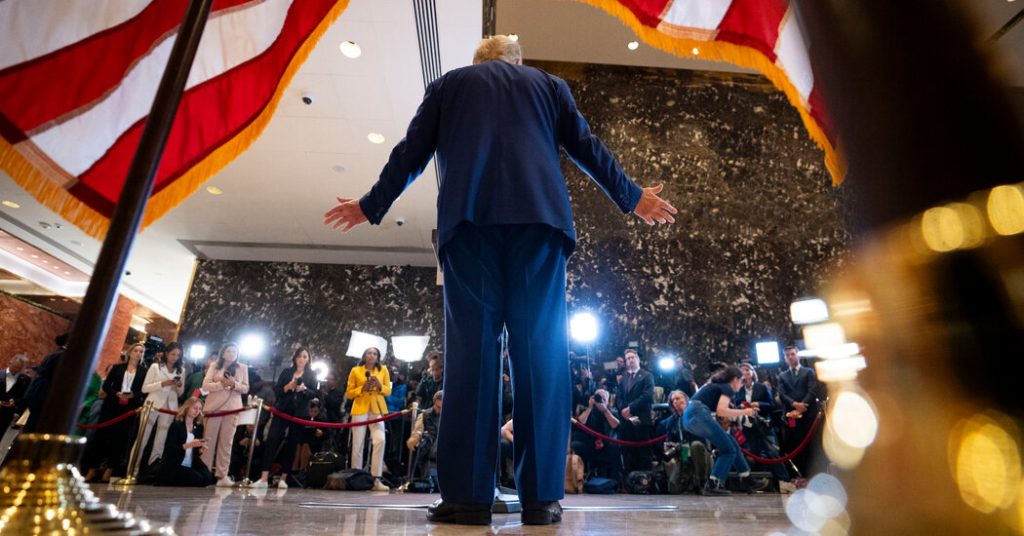After former President Donald J. Trump was found guilty of all 34 felony counts of falsifying business records, he immediately rejected the verdict and criticized the judge and criminal justice system. His loyalists in the conservative news media and Congress echoed his baseless claims, calling the trial politically motivated. This display of unity highlighted Trump’s continued influence over his base, as he and his supporters targeted the judge involved, criticized the judicial system, and distorted the circumstances of the charges and conviction. Despite their assertions, a fact check of some of their claims reveals inaccuracies in their statements.
Trump claimed that the judge presiding over the case was highly conflicted, but this assertion was found to be exaggerated by experts in judicial ethics. Trump’s accusations that Justice Juan M. Merchan was conflicted due to his daughter’s work were not supported by the New York State Advisory Committee on Judicial Ethics, which found no conflict of interest. Similarly, Trump’s claims that President Biden was personally directing the case lacked evidence, as the case was brought by the Manhattan district attorney, Alvin L. Bragg, who operates independently of the Biden administration.
Trump also alleged that he was not allowed to use his election expert in the trial, but this was proven to be false. The judge did not bar the expert from testifying, but did place limitations on what he could say. Additionally, Trump’s statement that he was facing 187 years in jail lacked evidence, as his actual sentence would be determined by the judge at sentencing. Another false claim made by Trump was that the case against him was brought back only after he announced his reelection campaign, when in fact the investigation began in 2018, prior to Biden taking office.
Representative Nick Langworthy falsely asserted that Trump received only 5% of the vote in Manhattan and that the trial was unfair due to a jury of adversaries. In reality, Trump received 12% of the vote in New York County, and his defense team participated in jury selection. Furthermore, Sean Hannity and other allies misrepresented the jury instructions, falsely claiming that unanimity was not required for the charges. Senator Marco Rubio also made false statements regarding the addition of felony charges to the trial.
Overall, Trump and his allies have continued to spread misinformation and baseless claims following his conviction. Their attempts to discredit the judge, the legal system, and the charges against Trump have been fact-checked and found to be lacking in evidence or accuracy. Despite their assertions of political motivation and unfair treatment, the facts of the case and legal proceedings do not support their claims. As Trump faces sentencing in July, it remains to be seen how his legal challenges and misinformation campaign will impact the final outcome of the case.


